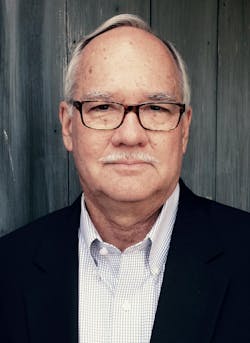Our current patchwork system in the U.S. relies on local and state regulations if they exist at all.
Achieving plastics circularity in the country is still possible without a treaty, but it is going to take longer and might not be as effective.
“This is a solvable problem. The solutions are there,” said Kate Bailey, chief policy officer at the Association of Plastics Recyclers. “You have the politics, but in large part the people who are coming to these events, the observers, accredited organizations, we know what to do. We know how to solve the problems.”
Bailey, who attended two of the six negotiating rounds organized by the United Nations, said she saw more consensus than disagreement although disagreement dominated the headlines. “There was actually a lot coming together,” she said. “The majority of the countries are supporting the same actions.”
Bailey said plastics recycling in the U.S. is “stalled out” and needs help. She cited polyethylene terephthalate (PET) bottle recycling as an example.
“We know how to recycle every PET bottle on the market,” she said. “We collect three out of every 10 bottles across the country. We are stuck at 30 percent.”
How do we increase the 30 percent collection rate? “It takes policy, it takes investment in infrastructure, it takes a variety of things,” she said. “This comes back to the recyclers being the losers.
“We are ready to take those plastic bottles and turn them back into new bottles or turn them into carpet. We all know it is good for the environment and the economy.”
At the end of the day, recyclers must be able to sell their recycled plastics. “Until the world decides it is going to buy recycled content and move away from virgin, we are sort of stuck in a situation where we cannot scale,” Bailey said. “We need that buyer commitment.”
Bailey said that once recyclers have solid commitments from buyers to use recycled resin, “recyclers are ready to rock and roll. The funding’s there, the capital, the technology and the interest. We just need some of those larger market forces to align and give us the support we need.”
Bailey is still optimistic about the treaty process. “I think the most important message coming out of the entire UN treaty process is that the world is concerned. This is not a fleeting moment where the world got mad about the turtle with the straw through his nose and then we all moved on to something else.
“This is a fundamental shift in how we manage plastic waste. This is going to be something that evolves over the next several decades.”
Can plastics recyclers wait decades? That is the critical question.

